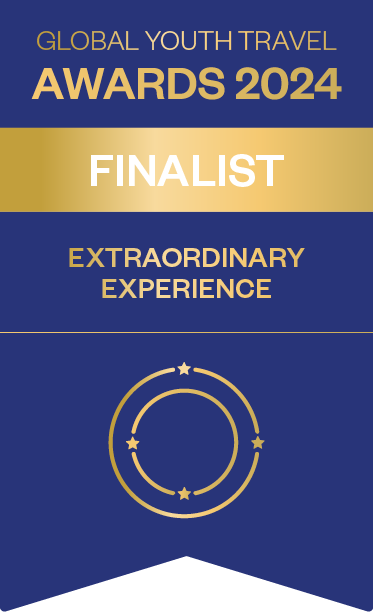From Leadership Development to Lasting Impact in the Community
From Leadership Development to Lasting Impact in the Community
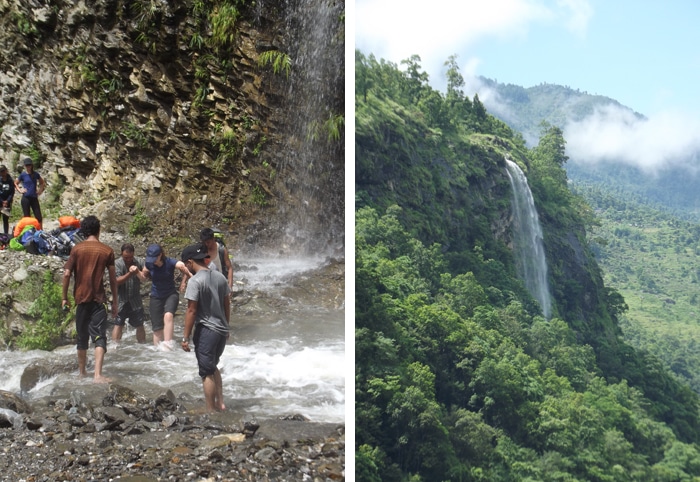
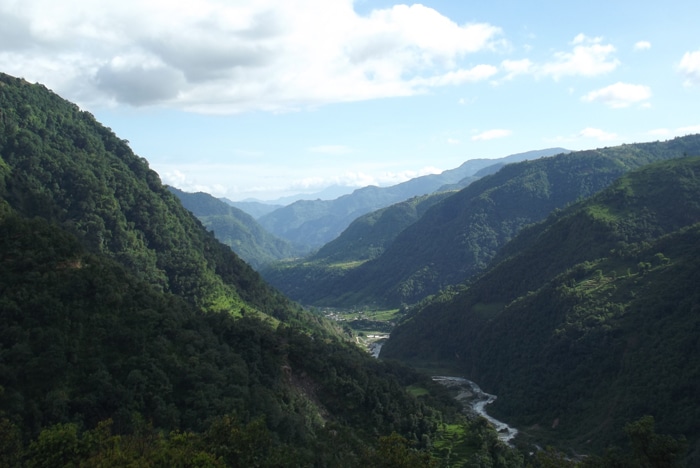
Photography by volunteer Chris
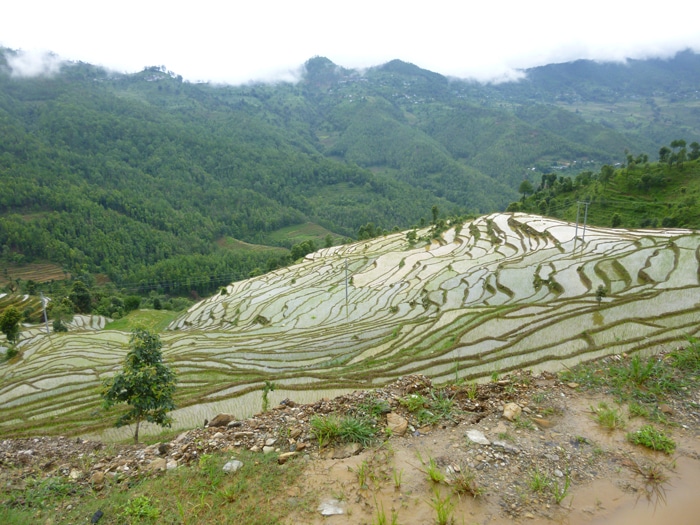
Photography by volunteer Juliet
Full of praise for the leadership of the trek, our volunteer managers, trek guides and medics all worked hard to ensure that each volunteer was given the opportunity to plan, lead and manage aspects of the adventure, developing their self confidence, self reliance and leadership skills. Refreshed, our volunteers are looking forward to joining the rural community’s where they will be contributing to our Water, Sanitation and Hygiene (WASH) programmes:
The Majhuwa Dudhey team
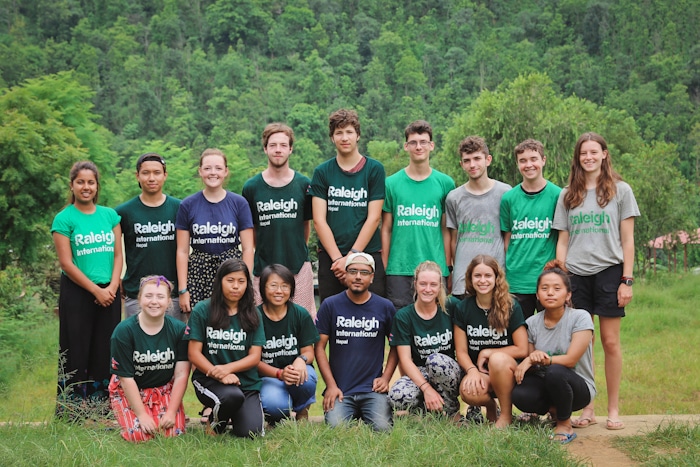
Back row L to R : Suprabha, Arpan, Jemima, Thomas, Rufus, Charles, Jake, Harry & Isabelle
Front row L to R: Juliet, Rohini, Holly, Shashwak, Isobel, Lauren & Susan
The team will be working with our local partners in Majhuwa Dudhey to help improve access to safe water and to bring about behavioural change in in health, hygiene and agricultural practice. This is the first time that Raleigh has worked with this community and the volunteers are looking forward to meeting their host families and understanding more about rural living in Nepal.
Water for the Majhuwa Dudhey community is currently fed from a stream in the mountains to seven public tap stands, serving twenty-four homes and a population of 140 men, women, and children. The WASH programme will initially focus on the construction of a permanent stream intake to improve water quality and security for the community. The teams will then start the second phase of the programme with the construction of a number of household tap stands, enabling a more equal distribution of water within the community.
The Sundar Basti Team
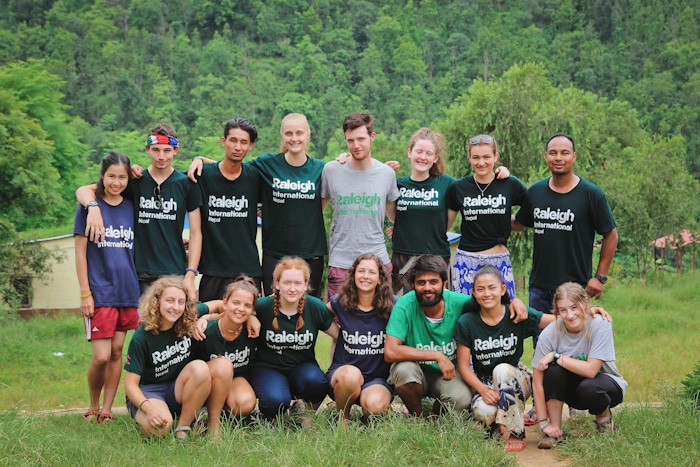
Back Row L to R : Nichada, James, Sujan, Lorna, Austin, Elen, Jess & Bhabisya
Front row L to R : Olivia, Camille, Rose, Lily, Shashank, Nabina & Harriet
In the Sundar Basti community, the WASH programme will focus on the repair of the existing water intake and distribution system that was badly damaged in the 2015 Earthquake. The impact of this is extensive; there is insufficient drinking water in the dry season, and the community is completely dependent on rainwater harvesting for the irrigation of crops, which make up the community’s staple diet and main source of income. The team will build a new water intake system and carry out repairs to the existing water reserve tank to prevent further leakage. This will reduce the level of impurities in the water supply and also enable the two settlements within the community to conserve water. The team are looking forward to learning more about the Nepali culture and gaining a better appreciation of the challenges of life in a rural community.
The Uttar Padhera Team
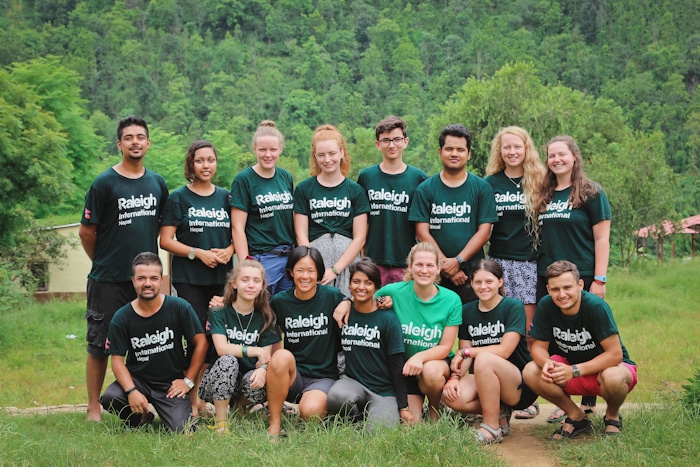
Back row L to R: Sakar, Nirdeshika, Djoeke, Alexandra, Ross, Sandeep, Jessie, Lily
Front row L to R : Bishal, Emily, Jacqueline, Kanchan, Suzie, Eleanor & Chris
Uttar Padhera is the largest of the rural communities that Raleigh Nepal will be working with during the Summer 2018 programme. With a population of 370 living in sixty-two households, the community relies on subsistence farming and day labour for income. Many homes in the community were damaged in the 2015 Earthquake, however the pace of reconstruction is slow, hampered by the remoteness of the settlement, and the difficulty of access through unmade roads. The WASH programme includes the construction of a Water Reserve Tank to store water for the community. The tank will collect water during the night, increasing the availability and quality of water during daylight, when it is safe to journey to the source. The team are looking forward to and seeing the impact of the WASH programme first hand.
Blog written by Susie Hill and photography, unless specified by Rachael Sture.


